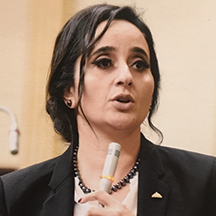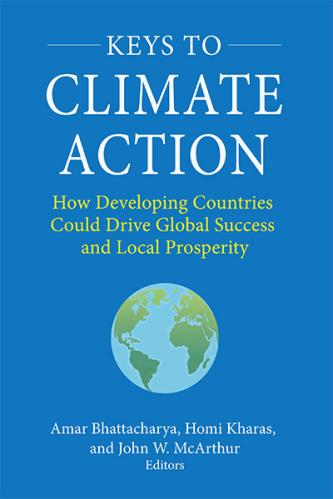This chapter was published in the edited volume “Keys to Climate Action: How Developing Countries Could Drive Global Success and Local Prosperity.”
Although Egypt accounts for only 0.6 percent of annual global carbon dioxide (CO2) emissions, it is becoming one of the most heavily affected by extreme weather patterns. In this working paper, Abou-Ali, Elayouty, and Mohieldin examine how well Egypt sets out a pathway for climate action. With the urgent need to translate climate ambitions into action and results, Egypt needs to harness the long-standing experience in the climate-related policy of other countries, including those in the OECD, to seize the opportunities available in the global wave of achieving climate goals. The most salient obstacles to Egypt’s transition can be categorized into three main pillars. The first relates to data systems availability to track and measure progress toward climate goals. The second concerns the implementation capacity for efforts relating to emissions mitigation, adaptation and resilience, and multilateral and multi-disciplinary collaboration. The third impediment is financing, investments, and business action mobilization. Finally, the working paper presents opportunities for progress in critical sectors such as agriculture, power, and transport. Egypt has a unique opportunity to transition to a more sustainable, inclusive, and resilient economy by undertaking urgent action and laying the basics for financial, economic, and social recovery.
Interview with the authors
What is one main message from your chapter?
Egypt needs to adopt a holistic approach that urgently tackles adaptation needs, fast-tracks mitigation investments, and supports more Egyptians pivot from struggling to succeeding.
What presents the biggest opportunity?
Egypt has a great opportunity to play a key leadership role in promoting development and reinforcing cooperation regarding liquified natural gas and renewable energy-produced green hydrogen supplies between Africa and Europe.
What serves as the biggest challenge?
Egypt is highly vulnerable to heatwaves, sea level rise, increased soil salination, rainfall retention, and desertification. Leading to potentially devastating impacts on the country’s economy, food security as well as people’s health and wellbeing. Hence, it has become critical to identify and evaluate strategies for adaptation.
What gives you the most hope?
Egypt possesses an abundance of land, sunny weather, and high wind speeds, making it a prime location for renewable energy projects. The government can easily harness climate technology innovation through fixing some economic incentives such as offering adoption subsidies and revisiting some of the environmental regulations.
The Brookings Institution is committed to quality, independence, and impact.
We are supported by a diverse array of funders. In line with our values and policies, each Brookings publication represents the sole views of its author(s).










